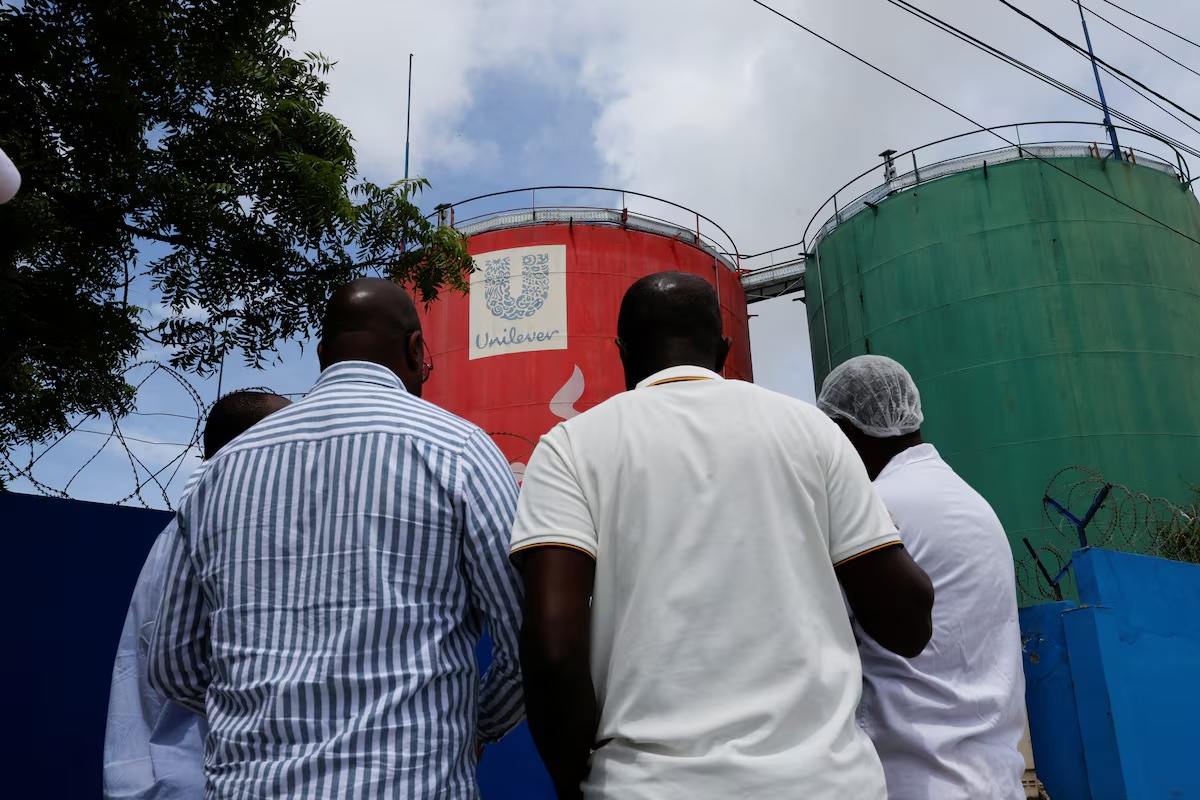
Exclusive: Ivory Coast workers claim Unilever is breaching their union rights during the share sale, according to documents
Employees in Ivory Coast who work for Unilever (ULVR.L) claim that the multinational consumer products company is breaking its collective bargaining agreement by not providing severance pay in the event that layoffs occur after the company sells its operations there, according to papers.
The troubled Ivory Coast business of British company Unilever, which employs about 160 people, is selling all of its shares to a local group of investors headed by wholesale distributor Société de Distribution de Toutes Marchandises Côte d’Ivoire (SDTM).
According to an internal memo dated April 8, Unilever Cote d’Ivoire (UNLC.CI) will only take over Unilever’s domestic brand business; SDTM will manage the consumer giant’s domestic and international brands in Ivory Coast. Unilever has not disclosed the future sales strategy for its global brands in Ivory Coast.
On April 25, employees at Unilever’s Abidjan headquarters started protesting, expressing concern that the company’s declining turnover in recent years and the loss of the international brand business would lead to layoffs following the sale, which is anticipated to finalize by June 20.
In the case of layoffs related to the sale of its Ivory Coast business, Unilever will provide workers with severance pay equivalent to “one month of average gross salary per year of seniority, with a maximum of 18 months,” according to their collective bargaining agreement with the company, which Reuters was able to view.
According to Soualiho Lassomann Diomande, a lawyer with Lex Ways who represents local employees, the 2004 bargaining agreement was validated by management in 2007 and is still going strong.
In addition, the agreement guarantees “medical coverage for a maximum period of six months.”
A representative for Unilever refrained from commenting on the accord.
According to meeting minutes examined by Reuters, however, Unilever Cote d’Ivoire’s chief, Arona Diop, said during a meeting at the Labor Inspectorate in Abidjan on April 25 that SDTM would determine workers’ rights and wages rather than the collective bargaining agreement.
While acknowledging that it was selling the Ivory Coast division, Unilever told Reuters that “the proposed transaction is by way of a sale of shares, which does not result in the termination of employees’ contracts.”
“Severance pay is not therefore relevant, as employment continues,” it continued.
Three Ivory Coast workers claim that Unilever’s international brand portfolio has contributed more than 60% of Unilever Cote d’Ivoire’s revenue, which in 2023 totaled 34.6 billion CFA Franc.
Job security is at stake because the most significant brands are not included in the share sale, Diomande added.
Additionally, according to Ivorian Labor Code article 16.6, any significant changes to an employment contract must be approved by the employee beforehand, Diomande continued.
An unnamed Unilever employee from Ivory Coast stated, “No assurances have been given regarding job security.”
A contract with Europe
According to Diomande and two employees Reuters spoke with, Unilever’s severance benefits under the collective bargaining agreement are far more generous than those mandated by Ivory Coast labor law.
The International Labor Organization’s EPLex database website states that Ivory Coast workers who have worked for up to five years are entitled to severance pay, which is equivalent to 30% of their gross monthly wage annually. After six to ten years of service, the percentage increases to 35%, and after ten years, it reaches 40%.
Early last year, Unilever announced that it would eliminate 7,500 jobs worldwide as part of a turnaround plan to save roughly 800 million euros ($913.12 million).
Unilever’s treatment of its employees in Ivory Coast, according to Diomande, was very different from that of its employees in Europe.
According to Reuters, Unilever decided last month to triple the typical duration in such agreements, even though it is not legally required to, by guaranteeing the employment terms of its ice cream workers in Europe and Britain for at least three years following the company’ spin-off.
The strength of regional unions and stringent labor regulations throughout Europe are reflected in the favorable conditions that have been reached.
In a statement to Reuters, Ivory Coast workers said they had requested that Unilever provide the same benefits, including severance pay, for two years—one less than what was provided to almost 6,000 Unilever employees impacted by the ice cream spin-off in Europe and Britain.
“Not applying the same conditions in Ivory Coast is unequal treatment and negative discrimination,” said Diomande.
All Categories
Recent Posts
Tags
+13162306000
zoneyetu@yahoo.com


